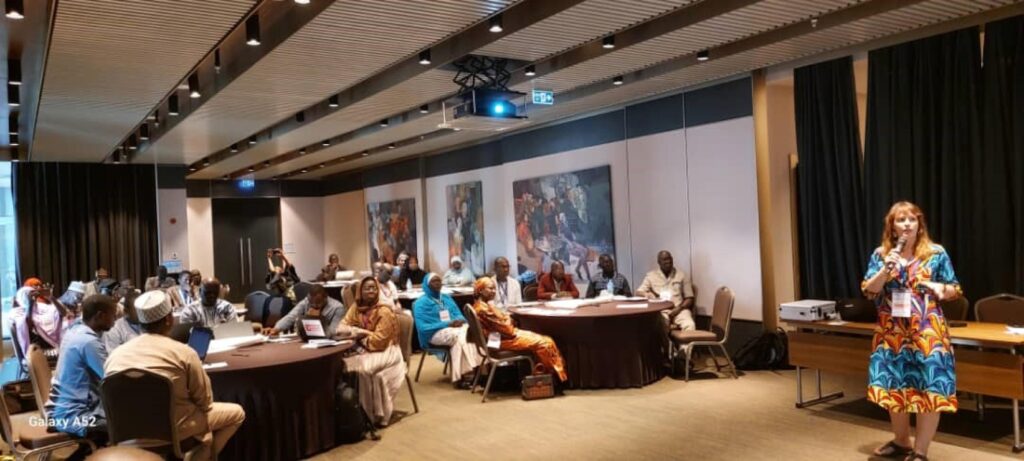High-level Training on Including People with Disabilities in Humanitarian Action held in Niger
Category
Capacity Building IASC-Guidelines Pilot Countries
© CBM
A training session took place in Niamey, Niger, from March 12th to 14th, focusing on including people with disabilities in humanitarian action, in line with the Inter-Agency Standing Committees (IASC) guidelines on inclusion of persons with disabilities in Humanitarian Action.
Previously, similar training sessions were held in Cameroon in May and in October 2023 with participants from six other countries of the region. Now, it was the turn of country directors and programme managers of humanitarian organizations in Niger to undergo this training.
Organized by CBM and Plan International Niger, as part of our “Phase 3- Leave No One Behind! project”, the training aimed to integrate disability considerations into global and local humanitarian action, in accordance with the IASC guidelines. The project is supported by the German Federal Foreign Office and implemented in collaboration with Handicap International e.V. and the IFHV of the Ruhr University of Bochum.
36 people attended the training, including representatives from UN agencies (OCHA, IOM, UNICEF, and WFP), international non-governmental organizations (Save the Children and Médecins Sans Frontières) and national organizations such as the Nigerien Federation of Persons with Disabilities (FNPH) and relevant ministries.
The training was interactive, enhancing participants’ understanding of disability inclusion and how to involve people with disabilities meaningfully in humanitarian action including effective collaboration with organizations of persons with disabilities (OPDs). Participants also reviewed project frameworks to make them more inclusive.
After the training, more than ten organizations committed to working with CBM and organizations of persons with disabilities (OPDs) to develop inclusive approaches and tools for their interventions.
Participants expressed satisfaction with the training, noting its value in helping them make their interventions inclusive and facilitating the meaningful participation of people with disabilities in their communities.
Text by Fasika Meherete, CBM
